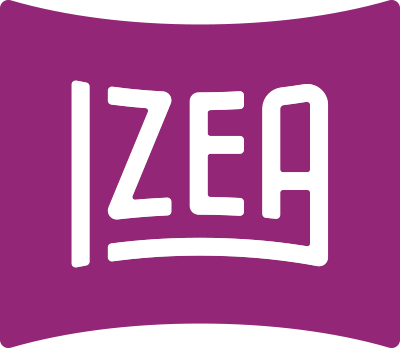77 % Rebound in Sponsored Travel & Tourism Content Since April 2020 Shows Progress
Orlando, Florida (April 7, 2021) – IZEA Worldwide, Inc. (NASDAQ: IZEA), the premier provider of influencer marketing technology, data, and services for the world’s leading brands, published a research brief today which provides an updated snapshot analysis of the influencer marketing industry within the travel and tourism industry following the outbreak of COVID-19 and as the industry recovers.
Insights within the research brief are drawn from data surfaced by BrandGraph, IZEA’s proprietary social intelligence platform. The platform is used brand marketers to identify, compare, and contrast momentum across brands, topics, and concepts in social media. BrandGraph leverages IZEA’s proprietary content classification technology and related datasets to categorize content across more than 10 million influencers and 1.2 Billion pieces of social content.
The study released today analyzes 241 travel and tourism industry brands — including leading airlines, hotels, timeshares, and theme parks, among others.
Download the BrandGraph COVID-19 Travel Brief here: izea.com/covid-19/bg-earned-travel
$5.2B Monthly Loss of Earned Social Media Value
Since the onset of COVID-19 the travel and tourism industry has seen a dramatic drop in the amount of organic brand content being shared on social media. Relative volume for organic (or “earned”) social media content mentioning brands has fallen by 92% from February 2020 to March 2021, markedly reducing the volume of ‘free’ social media exposure that is normally afforded to travel and tourism brands. IZEA estimates that the global impact on travel and tourism brands is $5.2B in lost earned media per month, assuming an average value of $20 per post.
“The travel and tourism industry has deeply benefitted from the rise of social media over the past 15 years,” said Ted Murphy, Founder and CEO of IZEA. “Billions of photos and videos are posted each month by consumers sharing their travel experiences with friends, family, and colleagues across social platforms ranging from Instagram to YouTube. The aggregate value of these organic posts is far greater than what the travel industry spends on paid media. The industry has become reliant on a massive amount of free marketing from social media users that has been abruptly and considerably reduced. When people aren’t boarding a plane or visiting a theme park there is no post on social media to make followers consider taking the same trip or visiting the hotel – there is no “I want to go there” moment.”
“While travel companies have slowly increased the services being offered to consumers, there has not yet been a corresponding uptick in the sharing of organic content for these brands,” continued Murphy. “We believe many consumers are hesitant to share their travels on social media no matter the safety precautions they have taken for fear of judgement by others.”
A Jump for Sponsored Content in March
Unlike organic content, sponsored content has seen a slow but steady rise since April 2020. Relative content volume for sponsored posts has rebounded 77% since the month after the World Health Organization declared the pandemic, but still remains down 61% from February of 2020. The majority of that rebound came in the month of March of 2021, with a 37% jump in relative content volume as compared to February 2021.
“Travel brands are slowly starting to invest in influencer marketing again. Marketing leaders are likely recognizing that they will need to allocate more of their spend to influencer marketing versus other forms of marketing near term,” commented Murphy. “Consumers simply aren’t sharing travel experiences as much as they used to, and that impacts brand awareness and consumer demand. We believe that travel brands will need to leverage influencers to get other travelers comfortable with sharing organically again. Influencers can assist brands to “prime the content pump” simply by sharing their own experiences with their audience. The potential return on investment from regaining volume and momentum of organic content far outweighs the cost of launching a large-scale influencer marketing campaign. The sooner that travel and tourism brands can reignite earned media, the faster the overall industry will recover.”
A Race to Capture the Travel Consumer Wallet
On April 2, 2021 the Centers for Disease Control and Prevention “CDC” issued updated guidance on travel for fully vaccinated people. Fully vaccinated people can now travel within the United States and do not need COVID-19 testing or post-travel self-quarantine as long as they continue to take COVID-19 precautions while traveling – wearing a mask, avoiding crowds, socially distancing, and washing hands frequently.
“The updated CDC guidance will create a once-in-a-lifetime event for the travel industry,” continued Murphy. “There will be a race to capture pent-up demand after a year of zero travel for many consumers. We believe those brands that are most aggressive with their marketing near term will stand to benefit most this summer and into the holiday season.”




